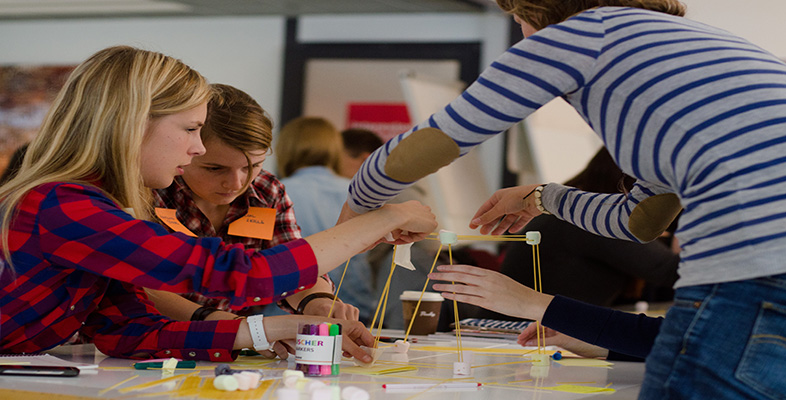2.2 Values and beliefs in the context of teamwork
Being able to raise issues and put forward your ideas to others is an important skill for all practitioners (Aubrey, 2018). In the next activity you will be encouraged to articulate your values and beliefs in the context of teamwork.
Activity 6 Values and beliefs underpinning teamwork (I)
The objective of this activity is for you to review and evaluate your own practice in relation to working with colleagues in a core team in order to make your underpinning values and beliefs explicit.
Think about and make notes on the following.
- What do you understand by the word ‘team’?
- Do you experience any difficulties when working as part of a team?
- Do you have a ‘common purpose’, an articulated ‘vision’, a written ‘mission statement’ or aims and objectives in your setting? What are they? Are they written down? How did they come about? Were you involved? What do they mean to you?
- What understandings, values, attitudes and beliefs relating to how children learn and develop, written or unwritten, do you share with those you work with?
It is widely accepted that the idea of ‘a common goal’ is core to understanding the notion of a team. But what is a ‘common goal’ and what does it look like in your practice? Bradford (2021) suggests that,
In early years childcare, a team is a group of people who work together to meet the aims of their establishment or setting. Because most early years workers are required to work alongside colleagues in a team, effective professionals working in the field of early years therefore need to be skilled in, and to understand the nature of, collaborative practice – the ability to work with others from different professions and perspectives. Early years work is people- based, highly dependent on interpersonal relationships and shared value.
Bradford goes on to suggest that the following concepts are associated with teams:
- motivated towards common goals;
- provided with the support and encouragement necessary to achieve these goals;
- able to communicate effectively.
It is commonly understood that teamwork involves individual interests being subordinated in favour of the group interests. This means that in order to create team spirit the needs of the team take priority over the needs of individuals in the team. It has been suggested that teamwork is underpinned by a number of core values. In the next activity you are asked to consider a set of core values underpinning teamwork.
Activity 7 Values and beliefs underpinning teamwork (II)
The objective of this activity is for you to examine your own practice in relation to working with a core team in order to make your views, values and beliefs explicit.
Think about your own views, values and beliefs in relation to working with other people using the idea of ‘ethos’. The positive ethos may be intangible in that you can sense it when you walk into a home or group setting but you cannot see it. This is because it is the ethos of your provision that reflects the shared philosophy of the team.
All practitioners need to develop a set of core values to help them engage honestly with the everyday experiences of those they work with or come into contact with.
Read the list below of core values identified by Stacey (2009, p.32) and then complete the tasks that follow, making notes.
Core values underpinning teamwork
- Trust
- Empathy
- Active participation
- Working together
- Open to opportunities
- Shared responsibility
- Write a short ‘self analysis’ to illustrate which of the core values you believe in or disagree with and explain why.
- Provide one example from your practice that reflects the influence of each of these core values.
- Talk to a colleague and note down which of your core values are shared.
- Consider whether there are any other core values to add to the list in relation to working with others.
Comment
Many core values can be observed, or be seen to be lacking, in the way individual team members are empowered to communicate with each other, for example in a team meeting. Teamwork and effective team leadership leads to high quality engagement between team members. This results in increased trust and positive relationships as well as the setting of shared goals (Bradford, 2021).
